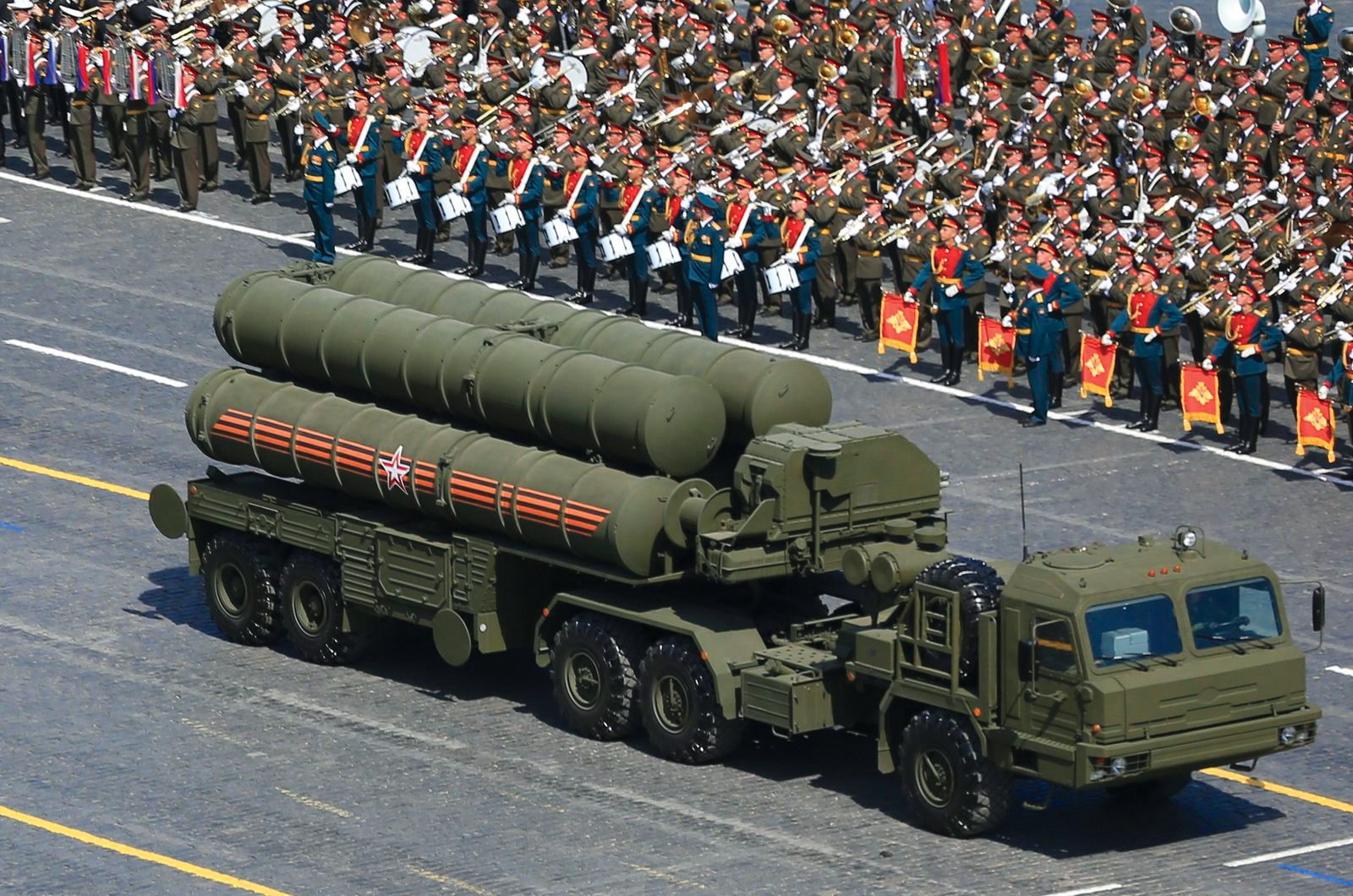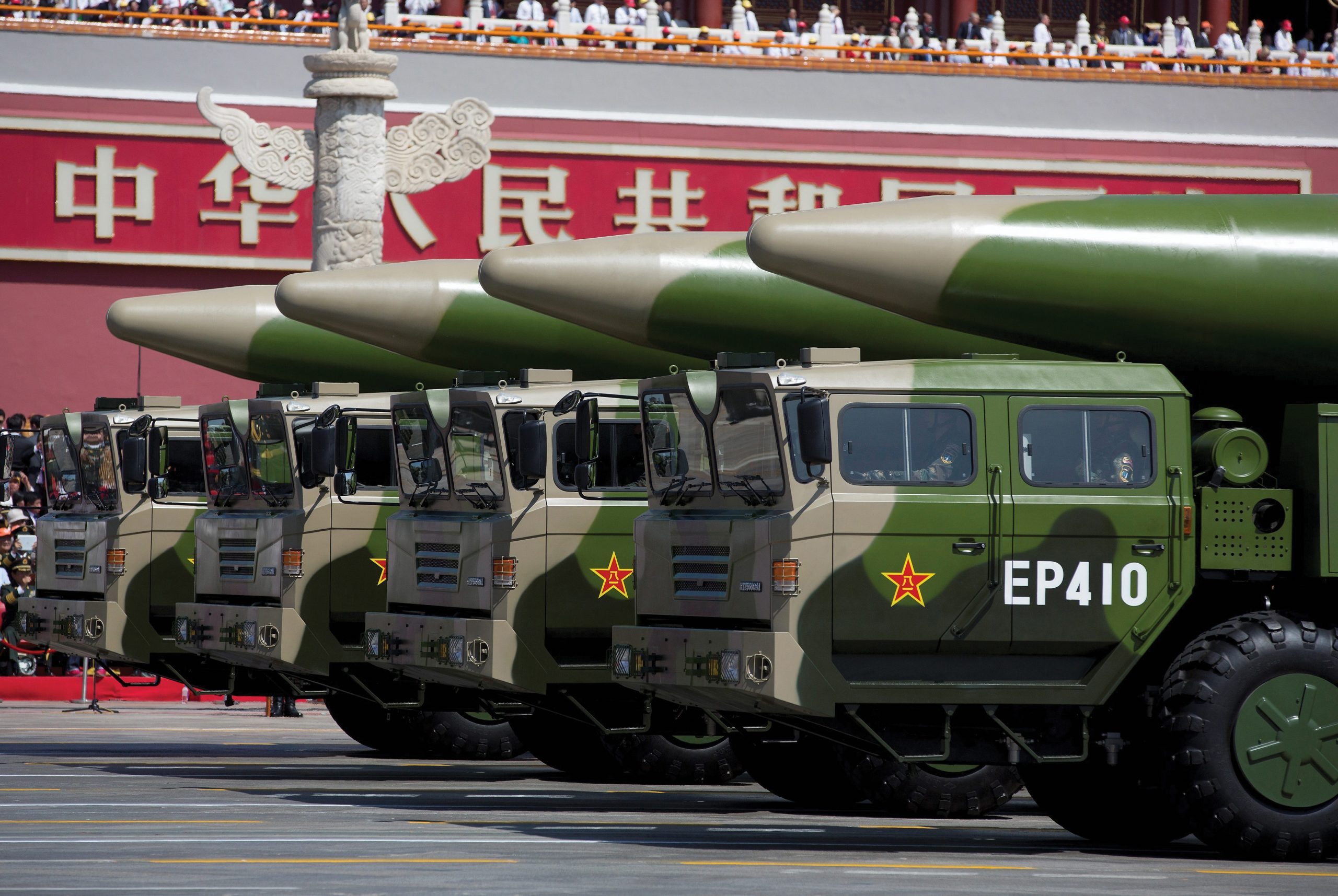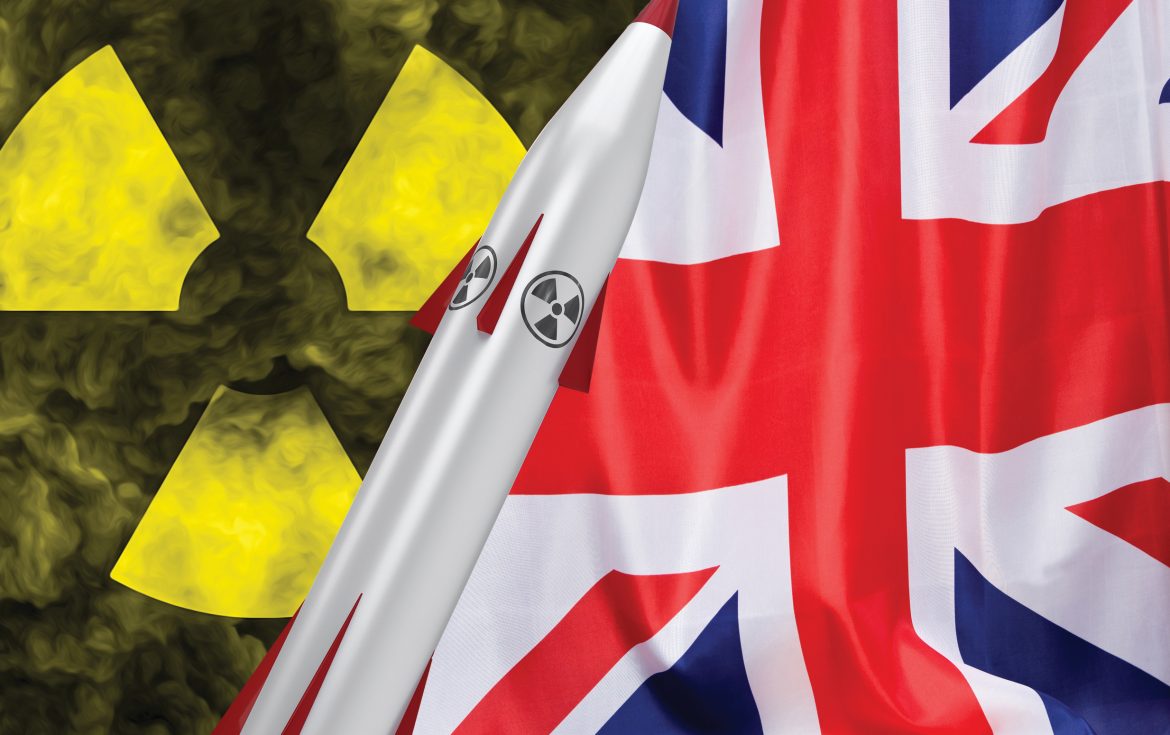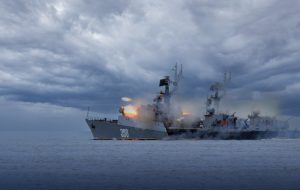The British government decided to raise the ceiling of its nuclear arsenal for the first time since the fall of the Soviet Union at the conclusion of the Security, Defense and Foreign Policy Strategic Review, published in mid-March 2021. Under this review, the ceiling on the UK’s nuclear warhead stockpile will be increased from 180 to 260, an increase that amounts to about 45%, putting an end to the gradual disarmament process that has been implemented since the fall of the Soviet Union thirty years ago. Britain justified the change with what it described as “a growing set of technological and ideological threats”.
In addition to the foregoing, the United Kingdom will not put a public limit on the number of missiles carrying nuclear warheads, which are ready for launch at any time, which was previously set at the limits of 120 warheads, nor will it provide any information on the number of warheads and missiles its submarines carry, which were previously designated at a level of no more than 40 warheads and 8 missiles, respectively. Also, Britain announced that it would not reveal the circumstances that might compel it to use its nuclear weapons as an indication of its adoption of the strategy of “strategic ambiguity”, in a move aimed at complicating the calculations of potential opponents regarding their threatening London’s interests or national security. The current study aims to clarify the dimensions and implications of this decision.

First: Dimensions of the nuclear review
The British review report attributed its decision to increase the number of nuclear warheads to many considerations related to a change in the international security environment, the “possibility of a” terrorist group “succeeding in launching a chemical, biological, radiological or nuclear attack by 2030, as well as facing the” active threat “from Russia and the “systemic challenge” from China, as well as the threats emanating from North Korea and Iran. This is in addition to other considerations represented in keeping Britain’s status as a major military power in the wake of its withdrawal from the European Union. These motives can be detailed as follows:
1 Deterring the terrorist challenge: The British defense review document indicates that one of the threats facing Britain is the possibility of the emergence of nuclear, chemical or biological terrorism supported by the state, that is, for a rogue state possessing nuclear, chemical or biological capabilities to transfer nuclear weapons to terrorist organizations and direct them to target Britain, as in this case, London will respond not to the terrorist organization, but to the country that supplied the terrorist organization with weapons of mass destruction.

Consequently, deterrence will not be against the terrorist organization, but against countries that supply it with such weapons. Although the document acknowledges that such a threat does not exist now, it reiterates that nuclear weapons highlight their importance as a guarantee in the face of the unknown future.
2 Confronting the Russian and Chinese threat: Britain tends to increase its nuclear warheads to keep pace with the escalating competition between the major powers, specifically the United States, Russia and China, and the tendency of these powers to increase their stockpiles of nuclear weapons.
If the United States is an ally of Britain, Russia and China are raising great security concerns for London, especially with the two countries expressing their willingness to employ armed force, either directly, similar to Russia’s occupation of Crimea, or indirectly, by adopting gray areas and armed militia tactics in eastern Ukraine for Moscow, or in the South China Sea, for Beijing, to impose a new fait accompli that guarantees the interests of the two countries, and comes at the expense of the interests of Western countries.
British Defense Secretary Ben Wallace revealed another obsession that haunts London, pushing it to increase its stockpile of nuclear weapons and to possess reliable deterrence capabilities, which is a response to progress in Russian capabilities, especially in the field of missile defense systems.
More specifically, Britain is concerned about the Russian S-500 air defense system, which is expected to be unveiled later in 2021, and which has the ability to intercept ballistic and winged missiles, and possibly hypersonic missiles. It is unclear precisely the full capabilities of the S-500 ballistic missiles, especially since some military experts confirm Moscow’s exaggeration in portraying its capabilities in this field.
Other concerns of the British military include the collapse of the INF Treaty, and Moscow’s development of short-range ballistic missiles such as the M729, which Washington claims violates the previous treaty. Another British defense document referred to hypersonic weapons and “early warning radar and integrated air defense systems” as a potential challenge to Britain’s ability to conduct military operations.
Of course, London’s view of Moscow as one of its security threats reveals Britain’s commitment to ensuring European security, even after London’s withdrawal from the European Union. As for China, Britain has come to view Beijing with a great deal of concern, as was evident in London’s ban on purchasing fifth-generation technologies from the Chinese company Huawei.
3 Curbing the Iranian and North Korean Challenge: The British review document believes that the resort of some countries to militarizing their foreign policy and adopting opportunistic methods, such as Iran and North Korea, are among the main factors that have contributed to the deterioration of regional security and the weakening of the international system.
The risks emanating from Iran are magnified by its reliance on non-state armed groups in its plans to enhance its influence and undermine regional stability. These groups are also using the same methods that states follow, such as launching cyber-attacks and disinformation campaigns. The document clarified that some countries (such as Iran and others) are increasingly cooperating with armed militias to achieve their goals, including their employment as proxies in the conflict, in a manner that gives this state the ability to deny its involvement in the attacks carried out by these militias, as well as blurring the line between the threats emanating from the state and those emanating from terrorist organizations and armed militias.
The strategy clearly stated the importance of responding to emerging threats from some countries, such as Iran and North Korea, who seek to acquire advanced and dual-use technologies; and strengthening efforts to prevent nuclear proliferation. It seems that the document sees London’s possession of a sufficient number of nuclear weapons as one of the basic methods for achieving deterrence vis-à-vis the two states, especially since Britain is a key partner in efforts to deny Iran the possession of nuclear weapons, through negotiations aimed at returning it to the nuclear agreement and laying down more stringent controls. London also remains the most prominent non-regional power participating in the negotiations aimed at denuclearizing North Korea and imposing sanctions on it in order to ensure its commitment to disarming its nuclear weapons.

4 Strengthening the British military position: Britain seeks to confirm its status as an influential international power in the wake of its withdrawal from the European Union, and to remain a difficult number, not only in the European security equation, but also in the international security equation, which requires London to strengthen its military capabilities, Especially in the field of nuclear weapons.
Second: the implications of the British move
The British move reflects a number of shifts in the British strategic thinking towards the nature of the threats that Britain has to face, and at the same time it bears a number of negative repercussions, which can be explained as follows:
1 Expanding the scope of nuclear weapon use: The British review document revealed a slight change in the policy of using nuclear weapons, as it made clear that the United Kingdom would not use nuclear weapons against non-nuclear countries that are parties to the Treaty on the Non-Proliferation of Nuclear Weapons, which fully comply with it. It made an important exception, which is that it reserves the right to review this in light of future threats emanating from chemical or biological weapons, or emerging technologies.
Given that Russia, and to a lesser extent, China, is one of the countries working to develop innovative new weapons, such as hypersonic missiles, the British threat is mainly directed at Russia, and a warning to it that any attempt to use new weapons against it, gives it a strategic advantage in confronting London, it may push the latter to escalate the use of nuclear weapons against it. And then pushes Moscow, or any other country, to review its accounts before considering launching any attack against it.
2 The priority of the Russian threat over the Chinese: It is noted from the review document that it gave priority to the Russian threat over the Chinese, which is clear from the phrases used. With regard to China, the document indicated its concern about China’s “assertive” policies. As for Russia, it considered it “the biggest direct threat to the United Kingdom,” which in part reflects the legacy of the historical differences between the two sides, as well as the existence of concerns about the Russian threat to Eastern Europe countries, and the active role London played through NATO in supporting these countries to confront Russia. Despite this, the review document enumerated a large number of behaviors, which could be classified as threats emanating from the two states, such as authoritarianism, militarization of space use, cyber-attacks and disinformation. But Moscow remains a bigger threat to London than Beijing, given its enormous military power, in addition to its progress in the field of military technology, not to mention its involvement in files that receive direct attention from European countries in general, and Britain in particular, such as the Ukrainian crisis.
3 Weakening the Nuclear Non-Proliferation Treaty: Britain’s announcement of increasing its arsenals of nuclear weapons is in violation of the NPT, and this was confirmed by the spokesperson of the United Nations Secretary-General, Estefandogarik, who emphasized that “this declaration is inconsistent with the disarmament obligations that all-nuclear countries have undertaken. ” Also, this would weaken the legitimacy of British diplomacy aimed at preventing more countries from acquiring nuclear weapons, similar to North Korea. But on the other hand, these considerations will not affect British policy, given that security threats are the main driver of London’s tendency to increase its nuclear arsenals. Other major countries, especially the United States and China, are heading to develop their nuclear arsenals.
4 A new nuclear arms race: The British move is expected to fuel a new nuclear arms race between the major powers. The Russian Deputy Foreign Minister, Sergey Ryabkov, emphasized that the London decision was unjustified and politically harmful, describing it as “destructive from the point of view of enhancing global stability,” and considered it a new indication of the possibility of an international arms race. But on the other hand, China also announced the development of nuclear weapons. It has previously rejected US efforts to include it in the nuclear non-proliferation negotiations, on the grounds that the number of nuclear bombs owned by Beijing is limited compared to the United States and Russia, and does not exceed 260 nuclear weapons, while Russia and the United States together possess about 88% of the nuclear arsenal in the world. Russia has 6,375 nuclear weapons, followed by the United States with 5,800 nuclear weapons.
In conclusion, the British review document reflects London’s readiness for a new international environment, in which there are increasing threats emanating from competition with major powers, whether in the areas of direct influence of these forces, or even in the struggle to explore outer space, and the British review document is warning that some countries are supplying armed agents with specific chemical, biological or nuclear weapons, to launch attacks targeting the security of Britain, and it seeks to deter this by maintaining a degree of strategic ambiguity about the controls over its use of nuclear weapons against its opponents.
Sources and references
Tom Plant and Matthew Harries, Going Ballistic: The UK’s Proposed Nuclear Build-up, RUSI, March 16, 2021, accessible at: https://bit.ly/3uh5dGH
Heather Williams, U.K. Nuclear Weapons: Beyond The Numbers, War on the Rocks, April 6, 2021, https://bit.ly/3teRsqv
Kingston Reif and Shannon Bugos, UK to Increase Cap on Nuclear Warhead Stockpile, Arms Control Association,April 2021, https://bit.ly/2PMFPJX
Heather Williams, op.cit.
Global Britain in a competitive age; The Integrated Review of Security, Defence, Development and Foreign Policy, HM Government, March 2021, p. 70, https://bit.ly/2SrwuYX
Global Britain in a competitive age, op.cit., p. 85.
» By: Dr. Shady Abdel Wahab













